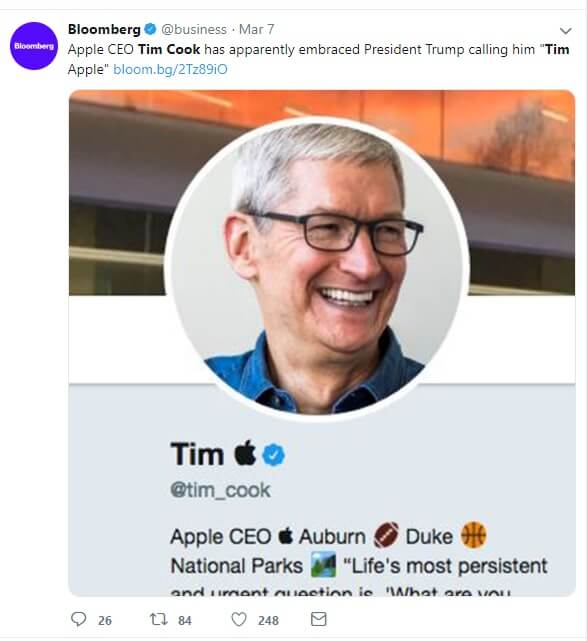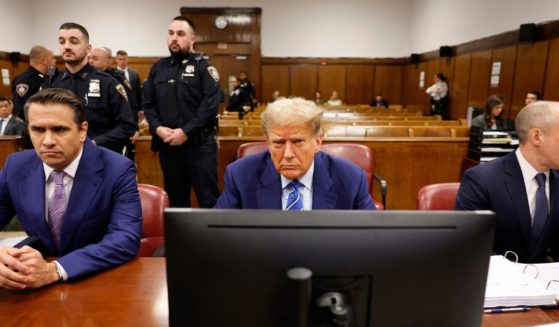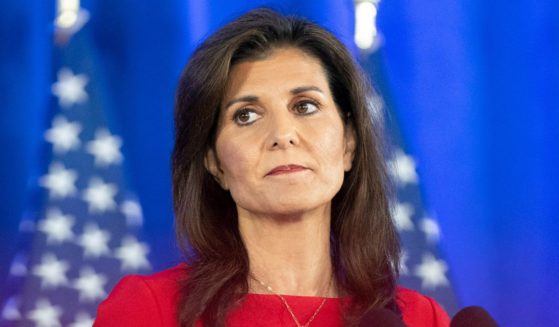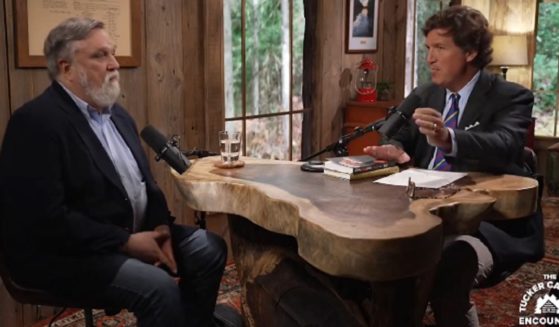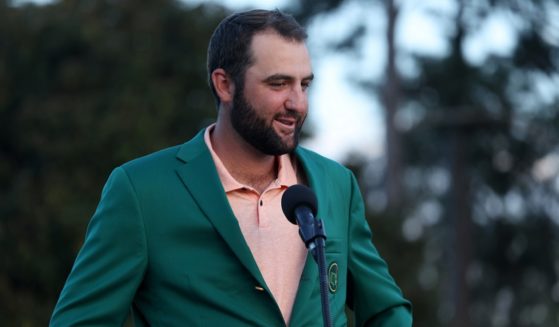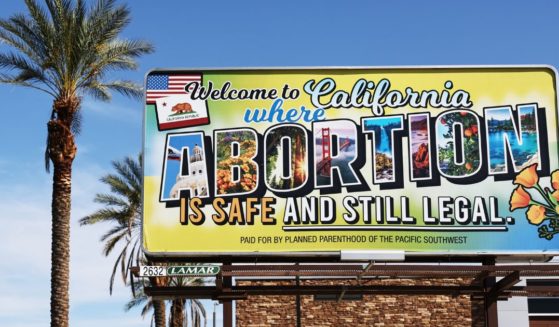The Media Roasted Trump for Saying 'Tim Apple,' But It Could Be a Game-Changing Habit
Last week’s inaugural meeting of the American Workforce Policy Advisory Board made for more controversy than anything with the words “advisory board” generally conjures up.
Fox Business Network’s Lou Dobbs, normally a staunch defender of President Donald Trump, imediately launched into an on-air tirade about the new group, and a verbal slip-up by the president regarding the last name of Apple CEO Tim Cook provided grist for Trump critics to grind out more insults against the man in the Oval Office.
The fact that the president referred to Cook as “Tim Apple” virtually overshadowed the advisory board’s meeting itself, getting so much attention that Cook actually changed his Twitter ID to use an Apple icon to reflect it.
But as one technology writer has pointed out since the “Apple-Cook” dust-up, Trump’s “gaffe” regarding Cook’s name might have been a mistake that actually showed Trump is more efficient than the media will ever give him credit for.
Start with the facts of the case.
According to Fortune, Trump introduced Cook as part of the new advisory board with some effusive praise.
“People like Tim, you’re expanding all over and doing things that I really wanted you to do right from the beginning. I used to say, ‘Tim, you gotta start doing it here,’ and you really have you’ve really put a big investment in our country,” Trump said.
Then came the gaffe that launched a thousand mocking tweets.
“We really appreciate it very much, Tim Apple,” Trump said.
If it were a normal world – or a Democrat were president – the media would have either ignored or shrugged off a slip like this. At any rate, it’s doubtful it would have been the headline or focus of a story by Fortune if a Barack Obama or Hillary Clinton had made such an error.
But Slate writer Heather Schwedel noted Thursday that Trump’s identification of Cook as “Apple” might simply have been a clue to how the president organizes his contacts on his cell phone.
Many, if not most, iPhone users have stored identifying information about in their contact lists that was more important than the contact’s name. It’s fast, it’s efficient, and it’s how a successful businessman would operate.
Now, it’s important to point out that Schwedel is clearly no Trump fan – her piece is taking Trump’s side but is still peppered with insults against him.
But Schwebel doesn’t’ let her apparent distaste for the president distract her from making the obvious point: That Trump might well be used to identifying people – particularly business associates – by their function, rather than their last name.
“My stance that ‘Tim Apple’ isn’t a big deal is also based on the reality that most of us are guilty of having ‘Tim Apple’-ed someone at sometime or another. You know, put someone in your phone contacts as ‘first name + how you know them’? Often because you don’t actually know their last name?…
“Sure, this kind of context might be more suited to the memo or notes area of the contacts entry, but who has time for that? If it works, it works. If I ever met Tim Cook and got his number for some reason, shoot, I might put him in my phone as Tim Apple. I can just see myself getting a call from someone named ‘Tim Cook’ and struggling to remember who in the world that is, but ‘Tim Apple’ tells me all I need to know.”
In short, developing the kind of habit Trump hinted at could be a game-changer for millions of Americans who find themselves occasionally staring blankly at their phone contact lists, trying to make sure they’re not calling the wrong person. Now, clearly this isn’t rocket science.
Recalling people by their associations instead of their names is fairly common in the real world (ask any waitress who identifies her customers by the breakfast they routinely order without ever knowing their last names.)
But the fact is, too much of the media roasted Trump for what was mocked as a gaffe. As Schwebel notes, what many liberals are portraying as a mistake might well have been just a sign that Trump organizes his identifications in the most efficient manner possible.
That’s understandable from a man who spent a lifetime in the business world, where clarity counts.
What’s not understandable is how the liberal media, from the Huffington Post to the U.K. Guardian, thought it was worth making a big deal over — as though it was indicative of a presidential lack of intelligence.
You don’t get to the be a billionaire, a cultural phenomenon, or the president of the United States by being dense. Making associations like “Tim” and “Apple” might be one secret to Trump’s success. (Major business moguls are generally a pretty sharp breed.)
What the president demonstrated on Wednesday might well have been simply the workings of an efficient mind – the kind of mind as familiar to normal Americans as a diner waitress.
The criticism over Trump’s “gaffe” was just one more sign of a media and critics’ efforts to hold Trump to standards they wouldn’t dream of for the presidency when they were coddling Barack Obama or a Hillary Clinton..
Or, in all likelihood, themselves.
And it took a writer at a liberal website like Slate to point it out.
Truth and Accuracy
We are committed to truth and accuracy in all of our journalism. Read our editorial standards.
